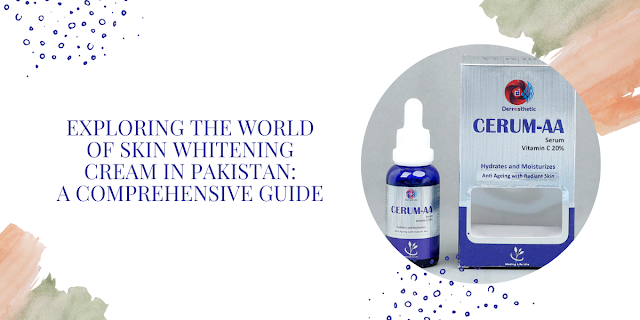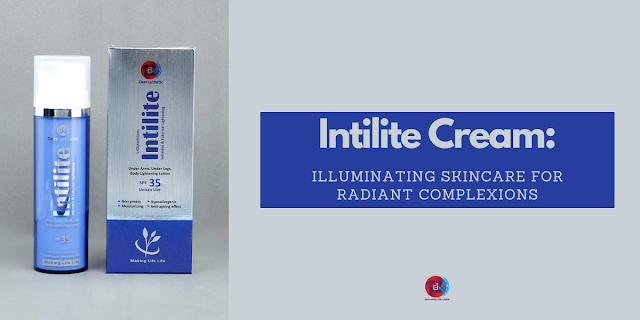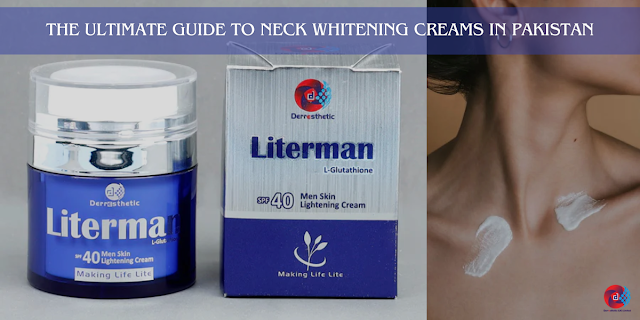Exploring The World Of Skin Whitening Cream In Pakistan: A Comprehensive Guide
In Pakistan, the pursuit of fairer skin has long been a cultural phenomenon deeply rooted in societal norms and perceptions of beauty. As a result, the market for skin whitening creams has flourished, offering a plethora of products promising lighter and brighter skin. In this comprehensive guide, we delve into the world of skin whitening cream in Pakistan, exploring their popularity, ingredients, efficacy, and potential risks.
Understanding
The Popularity Of Skin Whitening Creams In Pakistan
Skin whitening creams
have gained immense popularity in Pakistan, driven by societal pressure and
cultural preferences for fair skin. In a society where fair complexion is often
associated with beauty, success, and social acceptance, the demand for skin
whitening products continues to soar. From television advertisements to
billboards and social media influencers, the message promoting fairer skin is
pervasive, fueling the widespread use of whitening creams among consumers.
Ingredients
To Look For In Skin Whitening Creams
When choosing a skin
whitening cream in Pakistan, it's essential to scrutinize the ingredients
carefully. Commonly found ingredients in these creams include hydroquinone,
kojic acid, glycolic acid, arbutin, and vitamin C. Hydroquinone, in particular,
is a potent skin-lightening agent that inhibits melanin production. However,
its use is controversial due to potential side effects, including skin
irritation, hyperpigmentation, and even carcinogenicity. Consumers should
exercise caution and consult with dermatologists before using products
containing hydroquinone.
Efficacy
Of Skin Whitening Creams
While skin whitening
creams may offer temporary lightening effects, their long-term efficacy is
often debated. Many factors, such as skin type, melanin production, and
exposure to UV radiation, influence the results of whitening creams.
Additionally, the concentration and formulation of active ingredients vary
among products, affecting their effectiveness. Some users may experience
visible results within weeks of consistent use, while others may not notice
significant changes.
Potential
Risks And Side Effects
Despite their widespread
use, skin whitening creams come with potential risks and side effects that
cannot be overlooked. Prolonged use of creams containing hydroquinone or other
harsh chemicals may lead to skin thinning, rebound pigmentation, and increased
susceptibility to sun damage. Furthermore, some whitening creams may contain
mercury, steroids, or other harmful ingredients, posing serious health risks.
Consumers must exercise caution and prioritize safety when selecting skincare
products.
The
Role Of Regulation And Awareness
In recent years, there
has been growing awareness and concern regarding the safety and regulation of
skin whitening cream in Pakistan. Government authorities have taken steps to
regulate the sale and distribution of whitening products, imposing restrictions
on the use of certain ingredients, such as mercury and hydroquinone. However,
enforcement of these regulations remains a challenge, and many products
continue to be available in the market without proper oversight. Additionally,
consumer education and awareness campaigns are crucial in highlighting the
potential risks associated with skin whitening creams and promoting safer alternatives.
Conclusion
The market for body whitening cream
in Pakistan reflects complex societal attitudes towards beauty, skin
color, and self-image. While these products promise to fulfill the desire for
fairer skin, they also pose significant risks and challenges. Consumers must
exercise caution, conduct thorough research, and prioritize safety when
choosing skincare products. Ultimately, embracing diversity and celebrating
one's natural skin tone is essential in fostering a more inclusive and accepting
society.



Comments
Post a Comment